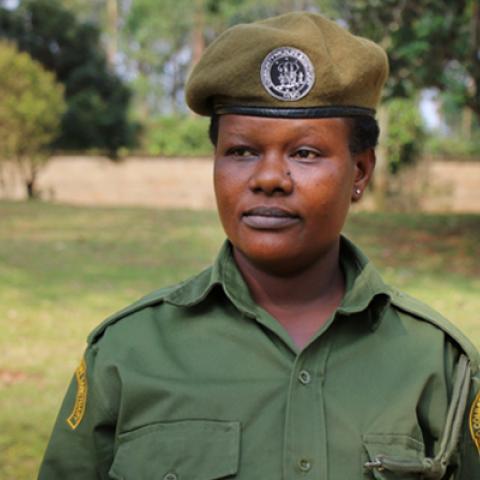Our Commitment to a Rights-Based Approach
AWF is committed to a rights-based conservation approach based on a Gold Standard developed by the Indigenous People's Major Group for Sustainable Development (IPMG) and Rights and Resources Initiative (RRI). The Gold Practice lays out best practices for recognizing and respecting Indigenous Peoples' and Local Communities' land and resource rights in landscape restoration, management, conservation, climate action, and development projects and programs.
Among other things, this includes:
- Acknowledging and respecting the rights of Indigenous Peoples and local communities, and of women within these groups, including their rights to land, territories, and resources customarily owned or used, whether legally recognized or not.
- Respecting the equal rights of women to lands, territories, and resources and to their participation and inclusion in the governance of such areas, and ensuring zero tolerance of violence, harassment, or intimidation against women in any and all project operations.
- Planning, initiating, and communicating projects, programs, and initiatives in full collaboration with Indigenous Peoples, local communities, and women, taking into account their self-determined development priorities, and shifting conservation practices in favor of locally-defined models and approaches, within a framework of partnership and solidarity.
- Obtaining free, prior, and informed consent (FPIC) of Indigenous Peoples and local communities where their rights may be affected and recognizing their distinct and differentiated rights.
- Ensuring that partnerships and agreements with Indigenous Peoples and local communities provide for mutually agreed and equitable sharing of benefits arising from projects, programs, or initiatives, and provide fair compensation for any current and future impacts on their lands, territories, and resources, including provision for sustainable livelihoods of affected communities.
- Implementing structured, independent feedback mechanisms that allow stakeholders to voice their opinions, concerns, and suggestions regarding program implementation.
As part of implementing this approach, we observe the best practices of FPIC across our landscapes and emphasize conservation interventions that directly benefit women and Indigenous people living in and around protected and conserved areas. In addition, we are integrating rights-based sensitization and training for communities and wildlife authorities across priority landscapes and putting into place grievance mechanisms that provide Indigenous Peoples and local communities with a means of lodging concerns and complaints. We support the resolution of concerns and complaints through local stakeholders and assist in escalating issues to higher levels of authority when necessary.
